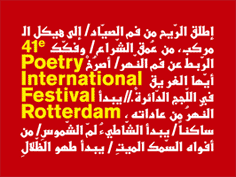Prose, poetry and prose-poetry
In the Old Irish Sagas, in the Fenian cycle of tales, the boy Fionn eats the flesh of the Salmon of Knowledge as he turns the fish on a spit by the River Boyne. The salmon had eaten nuts that fell from the Tree of Knowledge into the rivers of Ireland. The salmon was owned by the Wizard but the boy burns the flesh of the fish and touches its burned flesh with his finger, accidentally becoming the first to taste the Salmon of Knowledge and therefore becoming the wisest man in Ireland. Later, Fionn, the boy, grows up to become a great warrior and a great hunter. One day his companions asked him (him being wise) what was the most beautiful sound in the world: the others thought it must be the sound of a stag hunt or of a maiden in the act of love. Fionn said ‘No, the most beautiful sound in the world is the music of what happens.’ And so it is with poetry. It is both an accident and a preparation, a thing made that is both fortuitous and well planned. It is both the Knowledge and the Fish. It is wisdom without flesh, it is the hunt without any killing. It is both the moment that passes unconsciously and the accrual of wisdom over time.
Like the boy Fionn who tastes the burned flesh of a salmon, the poet also tastes the flesh of things, innocent with life and full of hope for poetry. The making of a poem begins and ends in hope. It is the hope that time stands still, that something may come out of nothing. The poet is at the centre of this making, the poet is the flesh around which the ideas accrue. At the heart of creativity the poet is not ‘for something’ in the political sense – the language as it is made to stand upright in a poem is not a banner only, but a limb, a part of life. What a poet does with that life is entirely a ‘social’ decision, never a literary one.
Therefore, we ask the questions ‘What is poetry? What is prose?’ each time we unburden ourselves, each time we make signs in language. Pasternak’s Dr. Zhivago asks this question repeatedly in his Christ-like love quest, the poet Gottfried Benn asks this question repeatedly as he journeys from cadavers and syphilitic patients into the late prose meditations on wisdom in old age. The French ask this question repeatedly as they tumble and cartwheel in prose poems across the disputed territories of European poetry, from Baudelaire to Jacques Reda. Language asks this question repeatedly, as ideas pour through it, as the colour of saying things (and the weight of feeling things) fills us with a personal urgency to be understood.
There is some part of poetry that seems to belong to prose. In a very early book of mine, The Sorrow Garden, a memory recaptured became a chunk of prose-poetry. Later, in Merchant Prince, the compelling and urgent information blossomed into an entire novella at the centre of the poetry collection. In my latest book, The Last Geraldine Officer, the prose-poetry is scattered in a patchwork of history, the history of an imagined Anglo-Irish poet, Colonel Gerald FitzGerald. The information is urgent between lyrics, it is fractured and threatened like any poetry at war. It is not that there is a technical difference here, a collapse of prosody, but history releases itself at a different pace. History demands a different poet, a poet beyond my capacity to create lyrics. Here, history swarms around the desk where I’m writing. This happens with every Irish poet. We are young boys at a riverbank, eating wise salmon.
Read more about Thomas McCarthy on www.poetry.nl and www.poetryinternational.org.


Trackbacks & Pingbacks